Nature Quest: Eden of egrets
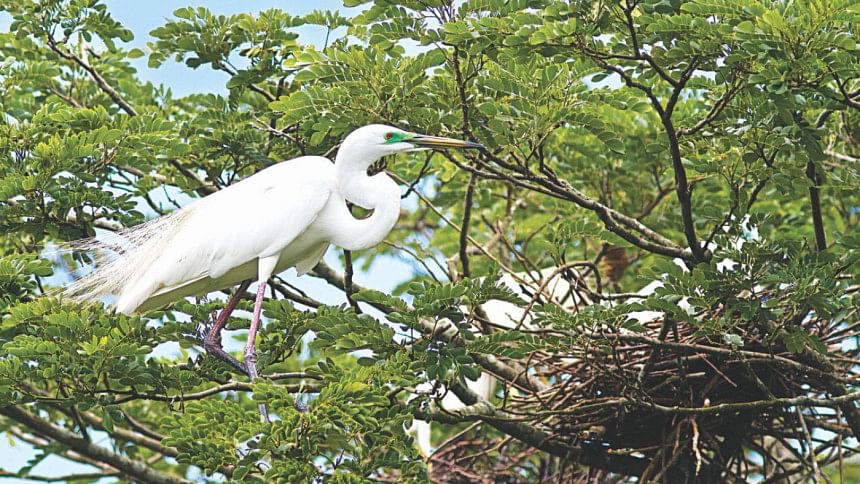
Unlike winter, monsoon is a quiet season for bird-watchers and travellers but the season holds its own beauty. For nature lovers, it's a season to celebrate life and colour. As many birds breed during monsoon, this period is an excellent opportunity to study breeding birds and to identify water bird breeding colonies. In one of these recent quests, I along with a few friends set off to conduct a count at an egret colony, close to Barisal city.
As we crossed the Dapdapia Bridge in Barisal, the sky played its games, clouds gathered and monsoon poured upon us. A road guarded by tall trees took us far from the city and we landed by a river where sailboats roam free.
During monsoon the southern part of Bangladesh, crisscrossed with many rivers, creeks and seasonal wetlands, turns into a paradise for resident water birds. Food becomes plentiful as wetlands expand with rain, and frog, fish and other aquatic species breed. For centuries our water birds have been using short window of opportunity to reproduce as they can feed their young with abundant food supply in local wetland.
However, our wetlands are diminishing quickly thanks mainly to rural development and agriculture. Suitable nesting trees are scarce as people no longer let native trees grow and plant commercially profitable invasive trees in villages. People collect chicks and eggs from heronry and often shoot the adults for food.
In such a dire situation, some people still offer shelter to wildlife even after sacrificing their own comfort. In this quest, we encountered a woman who has a greater heart than many of us. We rarely read positive news about wildlife and often find news of how animals are killed or captured. Therefore, I strive to find positive stories about people who help contribute to nature without expecting anything back.
Sumitra Bonik is one such woman. She let around 80 Great Egret, Intermediate Egret and 20 Little Cormorants to build nest and produce offspring in her backyard. She feels that these birds are like her own children as they chose her garden to build nests although suitable nesting trees are available in other villages. She and her family often fight with local hunters to protect these birds. If a chick falls out of the nest, she puts them back.
There are many other water bird colonies in villages across the country where locals protect these birds. They seem to understand the value of nature and our future.
The writer is a Conservation Biologist and Ornithologist, currently working on threatened species conservation and research in Bangladesh and abroad. He can be reached at [email protected]

 For all latest news, follow The Daily Star's Google News channel.
For all latest news, follow The Daily Star's Google News channel. 

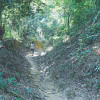
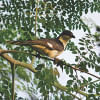
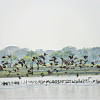

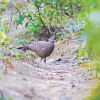


Comments